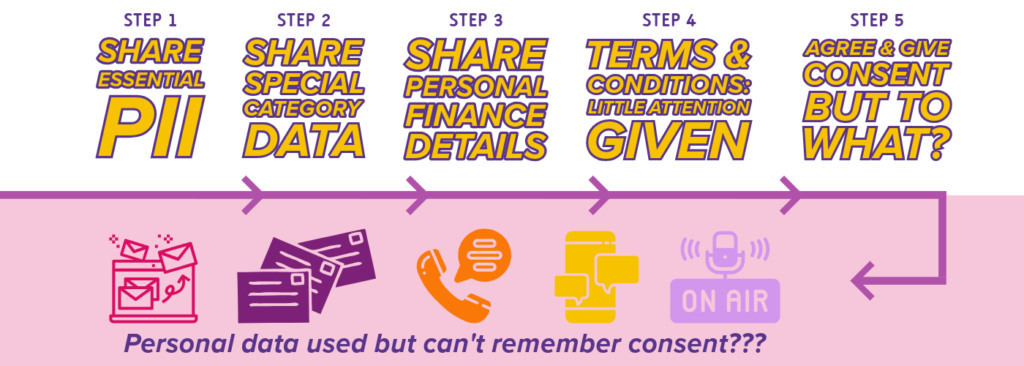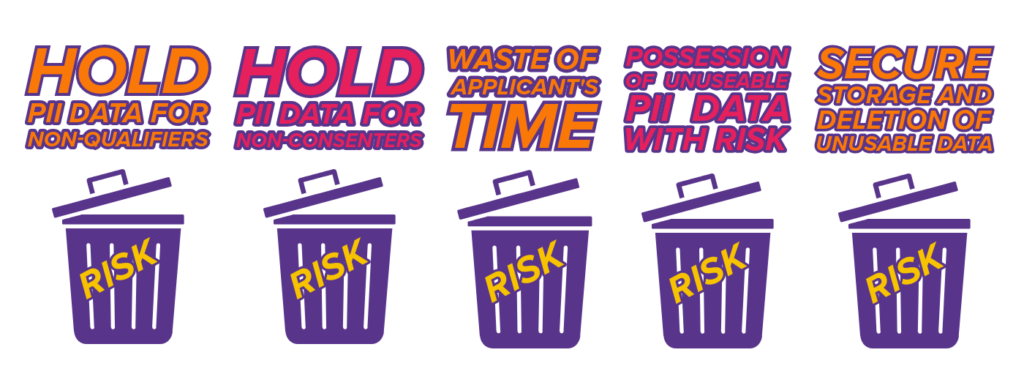The road to recruitment has many twists and turns to navigate. But for respondents, the journey to participating in research also includes one-way streets, no entry signs and emergency stops when there is a lack of information or understanding about what is involved.
In part two of the Screeners for Success series, we explore common barriers stopping new-to-research, and experienced participants getting involved in market research.
Barriers of Scepticism
32% of Give Opinions research applicants want to know more about how their personal data is handled BEFORE, DURING and AFTER the research project completes.
Many fear identity theft, involvement in fraudulent activity, or being bombarded with unsolicited sales and marketing communication.
Give Opinions applicants tell us their ‘TOP 5 CONSIDERATIONS’ when deciding to apply to take part in research:
- “The time commitment I need to give”
- “The expectations on me to contribute”
- “How much personal information I have to share before I take part”
- “How much personal information I have to share during the research”
- “The reasons why I am asked particular questions and how my answers are then used”
Although important, a juicy incentive is not the key driver for applying.
Using the insights our research applicants share with us, and of course our legal data control and processing obligations, we always start with the boring bits…
Don’t dread data & GDPR
The sound of the collective eye roll is deafening, but first things first, this is REALLY important.
Many screeners follow a similar structure and flow to a telephone application for a finance product, like applying for a credit card:

Collecting application data in the same was you’d have a conversation with someone, seems personable and logical. However, when collecting sensitive data and information to see if an applicant fits the research recruitment specification, it poses significant legal issues with financial and reputational consequences…
Prior permission is pivotal
For the Data Controller, the volume of data carrying risk is significant.

Collecting the minimum amount of PII (Personally Identifiable Information) and Special Category Data about a research applicant is a legal obligation and reduces risk should a data breach occur.
No nasty surprises
It is essential applicants understand what is required of them to take part and to receive their incentive payment for the hard work the complete and the insights they share.
Ambiguity creates a feeling of unease for applicants, and creates significant drop-out throughout the recruitment phase of a project.
Explain from the start..
- The application process
- The reasons why you’re asking questions they might view as intrusive
- If there are verification requirements, or if pre/post work is required
- What their experience might be like in the research session
- What happens to the information the share
- The next steps after they’ve applied
- When they’ll hear from you again
Removing ambiguity from the very start creates trust, promotes engagement and helps to stem drop-out AND reduces unnecessary data capture and disposal of PII and Special Category Data, to becomes void through applicants not providing their consent.
Avoid any disappointment…
It’s a real disappointment to applicants when their consent responses haven’t been considered as part of their application. It’s a real disappointment to lose them from your project, and find a replacement recruit.
When you start to shortlist, start with the GDPR questions. It’s easier to remove those with concerns and straight “No” responses, before you pursue them to take part.
The crucial point of PII collection…
Most people who apply to take part in research are more open to sharing personal data, once they know they’ve answered the questions that put them in the running to participate.
This is the crucial point where your collection of PII and Special Category Data can legally begin as the reason for collecting it dramatically as their application becomes legitimate for consideration to take part (pending further due diligence of course).
It’s time to ask those all-important first name, surname, contact details, age, gender, and other sensitive data points that make up the demographic quotas for your project.
Still confuddled about PII, GDPR, Special Category Data and when the right time to request it is? We’ve got the expertise in-house to keep research applicants informed, and keep you in line with the law. Get in touch here
